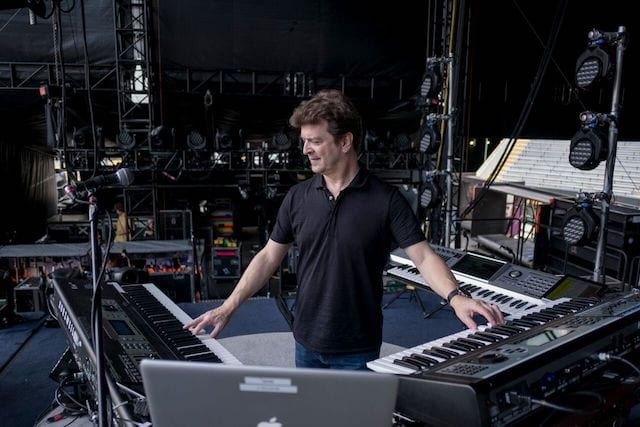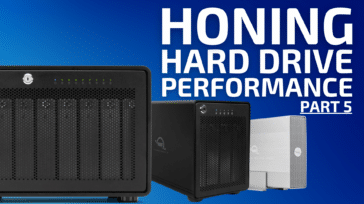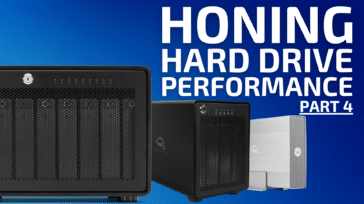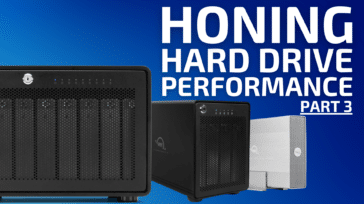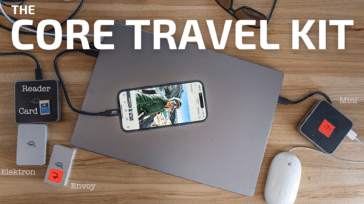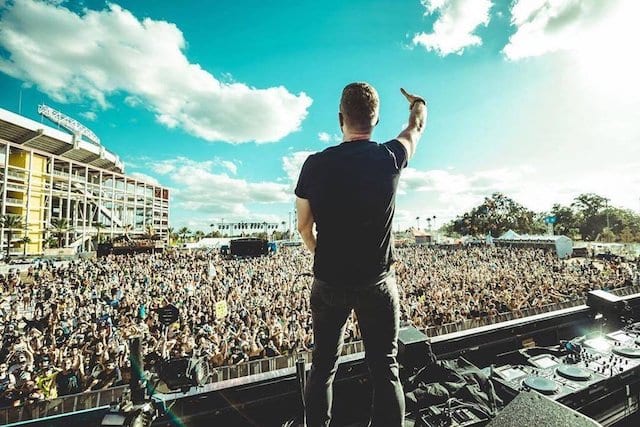
Morgan Page is an innovator. The GRAMMY-nominated DJ/Producer has spent his youth and now his career pushing the boundaries of new technologies both inside and outside of the studio where he creates chart-topping dance music. From his solar-powered studio, to his loaded Mac Pro and progressive music videos, Page is always ahead of the technological curve. And along with OWC, he will be on-hand for the 2018 NAMM Show among the tens of thousands of attendees and countless musicians discussing and demonstrating the latest innovation in the music industry.
But before heading out to Anaheim for the show from Jan. 25 to 28, OWC caught up with Page in Chicago before the latest stop on his tour to ask about his environmental initiatives, hardware priorities and what advice he has for up-and-comers.
Rocket Yard: As you know, environmental initiatives are important to OWC. So first, I wanted to ask you about your sustainability efforts and your solar-powered studio and how that began.
Morgan Page: It started because a friend of mine had done residential solar on his roof, and he was saying how easy it was…. I didn’t think it was possible or realize how simple it was. Going back, I got into it because I’m from Vermont and there’s a big progressive green movement there. And eventually I found out with Solar City, they can make it simple. So why not power the studio that way? You turn it on and forget about it. I grew up on a dirt road in a log cabin in Vermont… So, I’m always about sustainable activities and it’s always been a priority for me.
RY: You always seem to be integrated new technologies such as VR and 3D in addition to the green tech. What excites you about that kind of innovation?
MP: There’s always excitement, but I want there to be a clear rationale for going after and using a new technology. We did a 360-degree CG music video with the Unreal video game engine and it gives viewers some agency to sort of pan around and explore that world. So the main rationale is I want people to be able experience the music in a different way. Music is sitting in the background a lot now, and rather than watching a music video, people are multitasking, doing other things and just passively listening. I want music to be back in the forefront.
RY: Going back to your day-to-day, how does hardware like the 128GB of [OWC] memory help in your workflow?
MP: I really wanted to modernize my RAM, and I always by default want my machine and specs maxed out so there’s no doubt that I’ll be getting the best performance possible. I think the new Mac Pro wasn’t the quantum leap forward that some people thought, so I wanted to max out my machine’s RAM so I can run multiple applications at once along with intensive plugins – and it really helps stabilize the sessions.
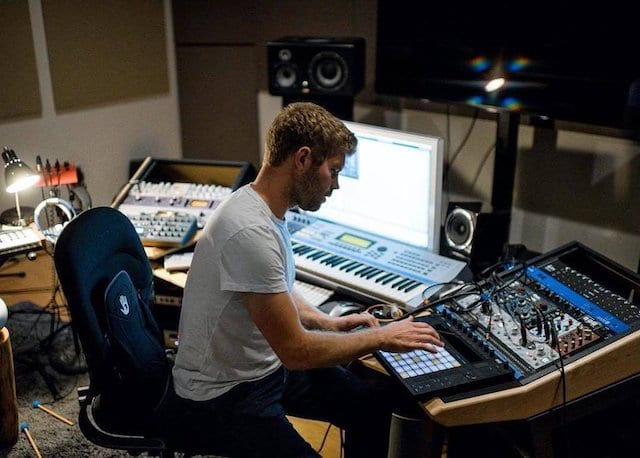
RY: You also have a OWC ThunderBay 4 mini here. Why is fast storage crucial for you?
MP: I don’t record at super high res like in film with 96k or 192k which create absolutely huge files. But now I’m juggling more media with huge sample libraries and huge virtual instrument libraries as well, and each runs off of fast external SSDs. And it’s good to be able to take massive storage out on the road, so form factor is very important.
RY: From a hardware standpoint, how do you recommend that beginners get started?
MP: You can easily spend thousands and just get diminishing returns. Getting a mid-range MacBook Pro and maxing out the memory and hard drive with slim external SSDs for travel is a great way to start. Software-wise, I recommend Abelton, but everyone needs to pick the DAW that works for them – there are a lot of great options. I’ll use Pro Tools for vocals and big intensive sessions, but now it’s whatever works the fastest for you and whatever is most intuitive.
RY: What other advice would you have for up-and-coming producers?
MP: The most important thing is to find what you’re drawn to and what kind of styles of music attract you. To make music, you’ve really got to try everything but at some point you have to focus and make that a priority over going out and all the things that are tempting. You have to sacrifice a lot. To me, I got into it through college radio. And that was the big commitment that I made. I ended up managing a radio station for a little while at Emerson in Boston and one thing led to a next. If you’re really drawn to it, you can go from that experience to internships or other opportunities. I think it’s really important that people plan for the long term but plan to have ownership of their music and really look at it like you’re building your own empire in the world of music. You want to be able to own your music, and own your company and build your own path.
RY: You’re going to NAMM again this month. What is it that keeps you going back?
MP: NAMM is madness. I just love to keep up with all of the new products that come out, and I do a lot of beta testing for software companies. I’ll help Pioneer with their DJ products, and I’ll help Antares with auto-tune. It’s nice to have a hand in the R&D with new products and I just love working with cool brands that I personally work with everyday.
RY: On the personal side, which projects are you excited about right now?
MP: Right now, the focus has been on singles. And there’s a new single now that’s doing well that’s called “Beautiful Disaster” which is a track I did with Stella Rio and Damon Sharpe. There’s a string of singles coming out that we’re going to craft into an album – like a multi-EP album… The medium is different now. We’re breaking the content into different pieces and making it digestible. You used to release singles and then the album comes out and it’s old immediately. So we try to keep fans interested and excited about the music and not just dump it all on them at once.
For more about Morgan Page, visit www.morgan-page.com. And if you’re headed to NAMM, be sure to stop by OWC’s Booth to see the latest hardware innovation at the show.






